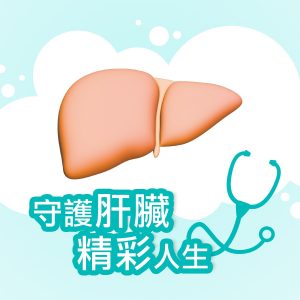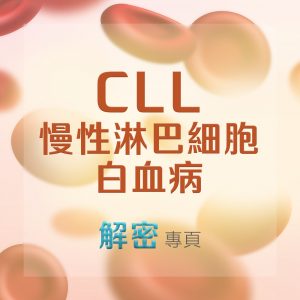2018 ASCO:IMpower 131研究將Atezolizumab加進晚期鱗狀非小細胞肺癌的化療中
翻譯:Helen YC Law
焦點
- 與單獨接受化療的患者相比,無論其腫瘤的PD-L1蛋白表達水平高低,29%患者疾病惡化或死亡的風險降低。
- 這種聯合治療改善患者的無惡化存活期(Progression-free Survival)接近一倍:同時接受免疫療法和化療的患者中,7%的患者病情無惡化達12個月,單獨接受化療的只有 12%。
- 儘管聯合治療的嚴重副作用發生率高於單用化療(68% vs 57%),但已具有可管理安全性的方案,且符合個別治療的已知安全風險。
第三期臨床隨機試驗的初步結果顯示,晚期鱗狀非小細胞肺癌患者同時接受PD-L1 免疫療法Atezolizumab(Tecentriq)及化療,與僅接受化療的患者相比,29%患者的疾病惡化或死亡風險降低,病情成功受控達12個月的患者數目較僅接受化療的為多 ,在所有PD-L1蛋白表達亞組中觀察到這種益處。這些調查結果在今天的新聞發布會上公布,並將由Jotte等在2018年ASCO年會上發表(摘要LBA9000)。
「迄今為止,鱗狀非小細胞肺癌的治療進展非常有限。我們的研究結果可能為這類癌症提供了一種新的潛在治療選擇。」丹佛洛基山癌症中心USON胸科委員會醫療主任兼聯席主席,主任研究作者Robert M. Jotte博士說。 「我們曾經認為化療只是打倒了患者的免疫系統,將其與免疫療法結合起來並不合理,但包括本研究在內、不斷進行的研究表明,化療有助引發免疫系統對腫瘤的免疫反應,增強免疫療法的效果。」
鱗狀非小細胞肺癌佔所有非小細胞肺癌個案約25%至30% ,晚期患者的一年存活率低於15%,五年存活率更低於2%。
最近的研究還發現聯合免疫療法和化療來治療非鱗狀肺癌的益處。 Jotte博士指出,鑑於這些發現以及上述臨床試驗的結果,預計臨床上的應用將很快出現變化。
關於該研究
IMpower131試驗招募了1021名第四期鱗狀非小細胞肺癌患者,並為其腫瘤進行PD-L1蛋白表達水平檢測,但無論腫瘤的PD-L1蛋白表達水平高低,患者均被納入試驗。在試驗開始前,腫瘤具 EGFR或ALK基因突變的患者接受了標靶 治療。
研究參與者被隨機分配到三個治療組別。然而,本報告僅報導了其中兩組患者的結果:Atezolizumab加化療(卡鉑和納他紫杉醇 [Abraxane]),343名患者;以及化療(卡鉑和納比紫杉醇),340名患者。第三組的結果數據尚未公佈,其中接受Atezolizumab的化療方案略有不同(卡鉑和紫杉醇)。
主要調查結果
在這項研究中,與單獨接受化療的患者相比,無論PD-L1蛋白表達水平高低,總患者人數中有29%疾病惡化或死亡的風險降低。重要的是,這種聯合治療使無惡化存活期倍升:同時接受免疫療法和化療的患者中,24.7%的患者病情無惡化達12個月,單獨接受化療的只有 12%。
所有同時接受免疫法療和化療的組別(包括PD-L1沒有表達和出現肝轉移的患者)均可觀察到無惡化存活期方面的改善。整體存活率數據則尚未成熟。
這是一項基於免疫療法的聯合治療方案的首個第三期臨床試驗,用於顯示晚期鱗狀非小細胞肺癌的無惡化存活期的顯著改善。作者說,雖然治療組別之間的差異不大,但在統計學上反映出顯著的改善。整體而言,晚期鱗狀非小細胞肺癌患者在免疫療法加入標準化療可獲益。
雖然聯合治療方案的嚴重副作用發生率高於單用化療(68% vs 57%),但已具有可管理安全性的方案,符合個別治療的已知安全風險。Atezolizumab 最常見的副作用包括皮疹、結腸炎和低甲狀腺荷爾蒙水平。
在這項中期分析中,統計學上並無觀察到整體存活期方面的顯著的效益(對於Atezolizumab加化療,整體存活期中位總為14個月,單獨使用化療為13.9個月)。研究人員繼續追蹤患者,並預計本年稍後時間進行後續分析。
下一步
需要更多的研究來確定哪些患者從標準化療加入免疫療法中獲益最多。 研究人員將探索腫瘤PD-L1蛋白表達水平和其他分子生物標記,例如腫瘤突變負荷,或可預測患者會否從這種治療方案中受益。
評論
「這是免疫療法持續被發現可用於對抗多種癌症的另一例證。 免疫療法已被證實對其他類型的肺癌有效,一直以來,晚期鱗狀非小細胞肺癌的治療非常困難,如今我們看到令人鼓舞的進展 。」ASAS專家,FASCO醫學博士David Graham說。
這項研究獲 F. Hoffmann-La Roche有限公司資助。
本文中的內容未經美國臨床腫瘤學會(ASCO®)審核,並不一定反映ASCO®的觀點和意見。
—————————————————————————————————————————————————————————-
2018 ASCO: IMpower 131 Studies Addition of Atezolizumab to Chemotherapy in Advanced Squamous NSCLC
By The ASCO Post Posted: 6/2/2018 12:54:55 PM Last Updated: 6/2/2018 1:57:21 PM
Key Points
- 29% of all patients, regardless of PD-L1 expression, had a reduced risk of disease worsening or death, compared with those who received chemotherapy alone.
- There was a doubling of PFS benefit with this combination: at 12 months, cancer had not worsened in 24.7% patients receiving immunotherapy and chemotherapy, compared to 12% of those receiving chemotherapy alone.
- Although the rate of severe side effects was higher with the combined modality treatment than with chemotherapy alone (68% vs 57%), it had a manageable safety profile, consistent with known safety risks of the individual therapies.
Initial findings from a randomized phase III clinical trial showed that patients with advanced squamous non–small cell lung cancer (NSCLC) benefit more from initial treatment with the programmed cell death ligand 1 (PD-L1)-targeted immunotherapy atezolizumab (Tecentriq) and chemotherapy than from chemotherapy alone: 29% had a reduced risk of disease worsening or death compared with those who received chemotherapy alone. At 12 months, cancer had not worsened in twice as many patients who received atezolizumab plus chemotherapy compared to those who only received chemotherapy. This benefit was observed across all PD-L1–expressing subgroups. These findings were featured in a press briefing today and will be presented by Jotte et al at the 2018 ASCO Annual Meeting (Abstract LBA9000).
“Until now, there have been few treatment advances for squamous NSCLC. Our findings may provide a new potential treatment option for this type of cancer,” said lead study author Robert M. Jotte, MD, PhD, Medical Director and Co-Chair, USON Thoracic Committee, Rocky Mountain Cancer Centers in Denver. “We used to think that chemotherapy just knocked down the patient’s immune system and that it would be irrational to combine it with immunotherapy, but growing research, including this study, shows that chemotherapy can help trigger the immune response to the tumor, helping the immunotherapy treatment work better.”
Squamous NSCLC, which accounts for 25% to 30% of NSCLC cases, is difficult to treat. Less than 15% of people with advanced squamous NSCLC survive a year after diagnosis, and less than 2% survive 5 years.
Recent studies have also found a benefit of combining immunotherapy with chemotherapy in nonsquamous lung cancer. Given those findings, along with the results from this trial, a rapid change in clinical practice is expected, noted Dr. Jotte.
About the Study
The IMpower131 trial enrolled 1,021 patients with stage IV squamous NSCLC. Tumors were tested for PD-L1 expression, but patients were included in the trial regardless of tumor PD-L1 expression level. Patients with EGFR or ALK gene changes in the tumor received targeted treatments before starting therapy on this trial.
The study participants were randomly assigned to one of three treatment groups. Outcomes for only two of the groups, however, are being reported in this presentation: atezolizumab plus chemotherapy (carboplatin and nab-paclitaxel [Abraxane]), 343 patients; and chemotherapy (carboplatin and nab-paclitaxel), 340 patients. Outcomes data for the third treatment group, which received atezolizumab with a slightly different chemotherapy regimen (carboplatin and paclitaxel), are not yet available.
Key Findings
In this study, 29% of all patients, regardless of PD-L1 expression, had a reduced risk of disease worsening or death, compared with those who received chemotherapy alone. Importantly, there was a doubling of progression-free survival benefit with this combination: At 12 months, cancer had not worsened in 24.7% patients receiving immunotherapy and chemotherapy, compared to 12% of those receiving chemotherapy alone.
Improved progression-free survival was observed in all groups of patients who received immunotherapy and chemotherapy, including those with PD-L1–negative tumors and liver metastases. Overall survival data are not yet mature.
This is the first phase III trial of an immunotherapy-based combined-modality treatment to show a significant improvement in progression-free survival in advanced squamous NSCLC, according to the authors. Although the difference between treatment groups is modest, a statistically significant improvement shows that, overall, people with advanced squamous lung cancer can benefit when immunotherapy is added to standard treatment, according to the authors.
Although the rate of severe side effects was higher with the combined-modality treatment than with chemotherapy alone (68% vs 57%), it had a manageable safety profile, consistent with known safety risks of the individual therapies. The most common side effects of atezolizumab included skin rash, colitis, and low thyroid hormone levels.
At this interim analysis a statistically significant overall survival benefit was not observed (median overall survival was 14 months for atezolizumab plus chemotherapy vs 13.9 months for chemotherapy alone). Researchers are continuing to follow patients and anticipate a subsequent analysis later this year.
Next Steps
More research is needed to determine which patients benefit the most from the addition of immunotherapy to standard chemotherapy. The researchers will explore tumor PD-L1 expression and other molecular markers, such as tumor mutational burden, that may predict whether a patient will benefit from this treatment regimen.
Commentary
“This is one more example of how immunotherapy is making steady gains against a number of cancers. Immunotherapy has been shown to be effective in other types of lung cancer, and now we’re seeing encouraging improvements in advanced squamous lung cancer, which historically has been very difficult to treat,” said ASCO Expert David Graham, MD, FASCO.
This study received funding from F. Hoffmann-La Roche Ltd.
The content in this post has not been reviewed by the American Society of Clinical Oncology, Inc. (ASCO®) and does not necessarily reflect the ideas and opinions of ASCO®.
文章來自: The ASCO Post
http://www.ascopost.com/News/58899




















